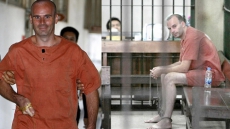OTTAWA — Canadian households will close out 2015 carrying thicker layers of debt after worrisome gains over the past 12 months — extra padding that's expected to get even fatter in the new year.
But even with the borrowing binges, many experts still believe the finances of most Canadians remain in decent shape.
This assessment comes as the country shows worrisome signs linked to consumer spending. It has a record-high debt-to-income ratio and the central bank has called rising household debt as a growing weak spot in Canada's entire financial system.
One big bank economist, who has closely studied household debt, said any negative fallout from the debt situation would likely depend on whether Canada sustains an unlikely economic shock.
But trouble could also hinge on how quickly interest rates eventually rise, said CIBC deputy chief economist Benjamin Tal.
Economic shocks remain difficult to predict and, for at least the next year, Tal doesn't expect rates to climb at a hazardous speed for those who may have overindulged on debt.
"As a society, there is no question that we are more sensitive to the risk of higher interest rates than in any other time in history," Tal said. "On its way up, it's extremely powerful."
Persistently low interest rates have been a major contributor to rising household debt. Borrowing became even cheaper in 2015 after the Bank of Canada twice dropped its benchmark rate to help cushion the blow of the oil slump.
Households, meanwhile, have dined on debt since the financial crisis and provided spending that has helped the economy recover.
If interest rates rise slowly over the next two to three years, Tal predicts the impact is more likely to curb consumer spending rather than harm their ability to pay down their debt. He doesn't foresee a wave of defaults if rates make an expected, gradual climb.
"It will be an issue a year from now," said Tal, who expects the steady climb of household debt to continue. "I think that interest rates will not be rising quick enough to derail ... the story."
Many of the debt numbers, however, have painted a disquieting picture.
Earlier this month, Statistics Canada released data that showed the amount of Canadians' household debt compared with disposable income rose to 163.7 per cent in the third quarter. It means the average household had nearly $1.64 in debt for every dollar of disposable income.
That was a record high.
The Bank of Canada has described the country's mounting household debt level the most-important vulnerability in the financial system — a susceptibility that continues to grow.
Governor Stephen Poloz recently said most of that exposure is concentrated among 720,000 households that could struggle to make debt payments in a significant economic downturn.
The proportion of households holding debt higher than 350 per cent of their gross income — a high-risk category — has doubled to about eight per cent since the 2008 financial crisis, the bank found.

They tend to be younger Canadians under 45 years old who usually earn less money, people Poloz has said are part of "emerging pockets of concern."
But while the bank says income growth has failed to keep up with rising mortgage credit, it argues the chances household debt becomes a serious problem remains low and is likely to fade as the economy strengthens.
So far, the bank says there's been little evidence of significant increases in delinquency rates.
But the Royal Bank of Canada and the Equifax consumer credit monitoring firm have pointed to early signs of trouble in oil-producing regions like Alberta, where unemployment has climbed following the oil-price slide. They have detected slight increases in auto and credit-card delinquencies.
Most debt, however, is concentrated in mortgages, particularly following the recent ascension of real-estate prices.
In 1999, only three per cent of Canadians held a mortgage that was 500 per cent or more of their income, said economist Craig Alexander, vice-president of economic analysis for the C.D. Howe Institute think tank.
Today, that number is 11 per cent, he added.
"That's not the bulk of Canadians, but it is half a million households," said Alexander, who co-authored a recent report titled "Mortgaged to the Hilt: Risks From The Distribution of Household Mortgage Debt."
"It's not an insignificant number. There's a pool of individuals that have leveraged themselves up."
Still, while Alexander thinks there are risks associated with the amount of debt Canadians are shouldering, he doesn't believe a majority of them have "behaved irresponsibly."
In fact, delinquency rates on mortgages are near record lows, said Sherry Cooper, chief economist for Dominion Lending Centres.
"If people were stretched, you would expect that there would be an increase in delayed mortgage payments — and we've seen none of that," Cooper said.
"We're all assuming that there's a huge problem here because debt-to-income ratios for households are at record highs. But the reason they're at record highs is because interest rates are at record lows. So, people, in fact, can afford to take larger mortgages than historically."
The new federal government has already tightened mortgage rules, a move expected to slightly cool off the hot housing market and have a small dampening effect on Canadians' tendency to pile on debt.
Earlier this month, Finance Minister Bill Morneau announced that starting Feb. 15, 2016, homebuyers will have to put a 10 per cent down payment on the portion of the price of a home above $500,000. Anything under $500,000 will still only require a five per cent down payment.

Morneau has said he has no immediate plans to make additional changes to address growing debt loads, but added he would continue to monitor the issue closely in the new year.
"It's obviously something that, you know, people when they go home over the holidays they're going to be worried about their situation, and this is the time of year when people tend to spend money," Morneau said.




